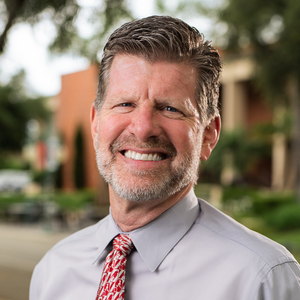‘Comfort ye, comfort ye my people, saith your God. Speak ye comfortably to Jerusalem, and cry unto her, that her warfare is accomplished, that her iniquity is pardoned: for she hath received of the Lord’s hand double for all her sins.” (Isaiah 40:1–2)
As wonderful as verses 1–2 of Isaiah 40 might be, they fit within a chapter containing an overall message that makes these two verses even sweeter. Reading the 31 verses of this chapter, it is not difficult to see clearly its three-fold structure.
Verses 1–11 serve as the introduction to the promise of worldwide salvation.
Verses 12–26 sets forth the premise that God is more than capable of fulfilling this promise.
Verses 27–31 concludes that, even before the actual fulfillment of this promise, one can live above present difficulty and enjoy the pleasures of God’s enabling presence.
In chapters 1–39, Isaiah has confronted the sins of his generation. The picture is bleak. But chapter 40 catapults the reader into the future, offering a promise of what God’s amazing mercy can accomplish in the lives of sinful people.
This promise is offered to people who are experiencing anything but mercy. They are in captivity, enduring 70 years of exile from their homeland, the memories of which have all but disappeared. The sights are different. The smells are different. The tastes are different. The people and customs are different. The Israelites have started businesses and adopted their new culture. Some, like Daniel and Esther, have even risen to the highest places of governmental authority and position. Sons and daughters have been born who no longer speak the language of their parents. They play with children who have a different worldview. They have never seen their homeland. They have a new home now. In many ways, perhaps, the Israelites feel that they have been forgotten by God.
But, then, God speaks. In Isaiah 40:1–11, God speaks 11 imperatives. Six of these imperatives have to do with God moving toward his people. It is this movement of God toward his people that offers the only hope. …
In the context of their failure, God speaks, “Comfort, O comfort, my people. … Speak kindly to Jerusalem.” In the midst of their pain, God provides hope. He also provides the means for his people to rise above the difficulty and experience him and his glory.
This amazing God still speaks today. In the midst of our failure, he speaks comfort. In the midst of our pain, he offers hope. And he provides the means for us to rise above all the difficulty and experience him and his glory through the gospel.
The essence of the gospel is that God desires relationship with his creation. So, he moves toward them. In fact, Christianity is all about the saving grace of the Lord. He overrules our foolishness and rebellion with his own pardon through the finished work of Christ on the cross. Do we sin? Yes. Do we experience his discipline as a result? Yes. Is that where God leaves us? No. God moves toward us and cries out, “Comfort, O comfort, my people.” It was not only his message to Israel; it is his message to us today.
Do you believe God can bring comfort? According to Isaiah 40:27, Israel wondered, even doubted. Maybe you do too. But God was able to make good his promise to Israel (see verses 12–26), and he is able to make good his promise to you. He moves toward, and he comforts. What an amazing God.
This issue’s Last Word is from the Advent Project, an annual devotional resource published by Biola University’s Center for Christianity, Culture and the Arts. This devotional was originally published on Nov. 29, 2020. To follow this year’s Advent Project, visit ccca.biola.edu/advent.
 Biola University
Biola University

.jpg)

